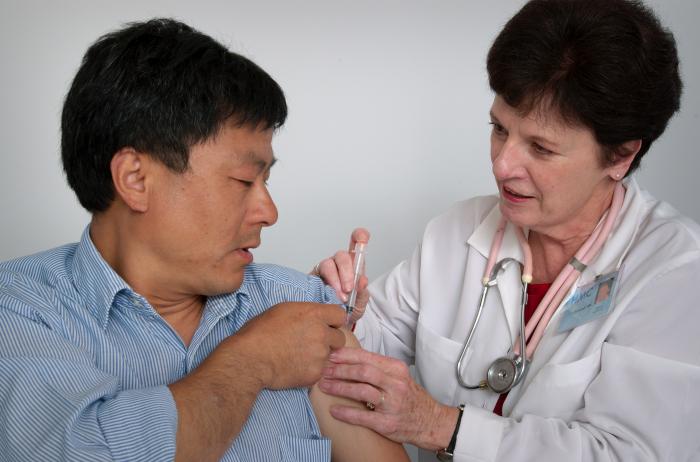- Clinical Technology
- Adult Immunization
- Hepatology
- Pediatric Immunization
- Screening
- Psychiatry
- Allergy
- Women's Health
- Cardiology
- Pediatrics
- Dermatology
- Endocrinology
- Pain Management
- Gastroenterology
- Infectious Disease
- Obesity Medicine
- Rheumatology
- Nephrology
- Neurology
- Pulmonology
Universal Flu Vaccine on the Horizon
A universal vaccine that protects against all strains of influenza virus may eventually replace yearly seasonal flu shots. This vaccine has been shown to be effective in animals, report investigators from the National Institute of Allergy and Infectious Diseases (NIAID).

A universal vaccine that protects against all strains of influenza virus may eventually replace yearly seasonal flu shots. This vaccine has been shown to be effective in animals, report investigators from the National Institute of Allergy and Infectious Diseases (NIAID).1
In experiments with mice, ferrets and monkeys, the researchers used a prime-boost immunization approach to elicit antibodies that attacked a diverse array of influenza virus strains.
Lead NIAID investigator Gary J. Nabel, MD, PhD, and his colleagues first primed the animals’ immune systems with a vaccine made from DNA encoding the influenza virus hemagglutinin (HA) surface protein. The mice and ferrets then received a booster dose of the 2006-2007 seasonal influenza vaccine or a vaccine made from a weakened cold virus (an adenovirus) containing HA flu protein. Monkeys were boosted with the seasonal flu vaccine only.
Although the DNA in the priming vaccine was derived from a 1999 circulating flu virus, all the animals made antibodies capable of neutralizing virus strains from several other years. Mice and ferrets produced antibodies not only against virus strains dating from before 1999, including a strain that emerged in 1934, but also against strains that emerged in 2006 and 2007. Moreover, although the prime-boost vaccines were both made from H1 subtypes of influenza A virus, the antibodies they generated neutralized other influenza subtypes, including H5N1 (avian influenza) virus.
“We are excited by these results,” said Dr Nabel. “The prime-boost approach opens a new door to vaccinations for influenza that would be similar to vaccination against such diseases as hepatitis, where we vaccinate early in life and then boost immunity through occasional, additional inoculations in adulthood.”
Trials of prime-boost influenza vaccines assessing safety and ability of the vaccine to generate immune responses are already under way in humans, Dr Nabel added. The information from the new research will be valuable in selecting candidates to move forward into large-scale trials, he said. “We may be able to begin efficacy trials of a broadly protective flu vaccine in 3 to 5 years.”
References:
Reference:
1. C-J Wei, et al. Induction of broadly neutralizing H1N1 influenza antibodies by vaccination. Science DOI: 10.1126/science.1192517 (2010).
